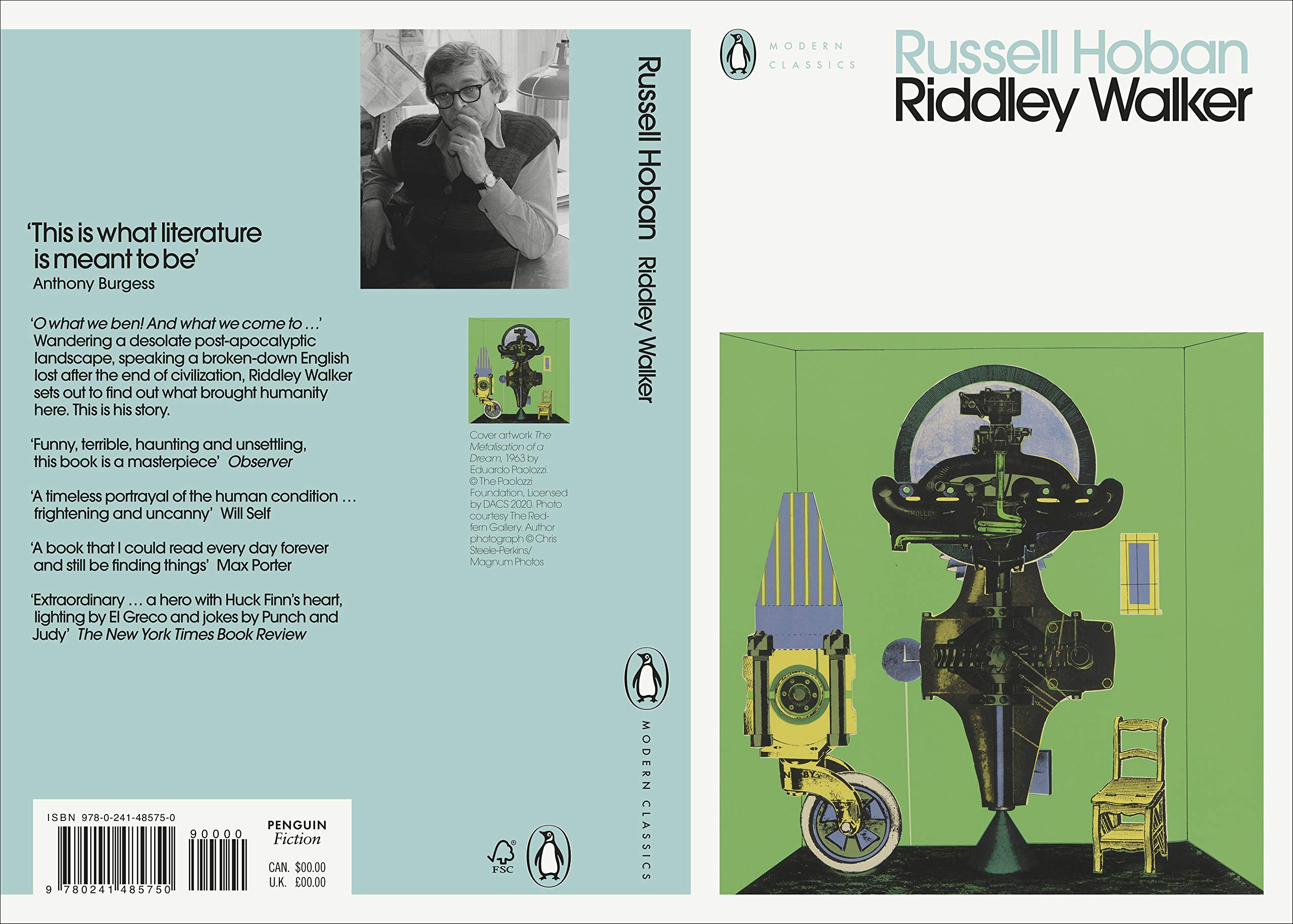

Who’s to say that Hoban shouldn’t have taken a punt on that basis? Only last week, the Guardian reported that a new study has shown that chance plays a huge role in linguistic evolution. Equally, you can flip the argument around and say that Hoban’s predictions about the way English could change are as good as any, because there can be no hard and fast rules. Commenter theupsetappletart pointed out that without the Great Vowel Shift, English would have remained much more consistent over the past 1,000 years, so it was reasonable to keep the language in Riddley Walker comprehensible. We can’t know how the language of a post-apocalyptic future would sound maybe this approximation is reasonable enough. Several people responded that Hoban had taken “acceptable licence”. So what exactly is the conceit? Is this the ‘author’s’ partial translation of Riddley’s original or did Mr Hoban just mistakenly think that English would be so little changed so far in the future?

(Compare Old English texts from a mere 1,000 years ago, which, but for the odd word, are utterly incomprehensible to modern readers.) It’s also unlikely that someone with Riddley’s rudimentary literacy would make systematic use of punctuation such as inverted commas in his writing. That is, however, clearly impossible, given that the ‘English’ spoken that far in the future and after a nuclear catastrophe would diverge to a far greater extent from the language we speak today than Riddley’s text. It purports to be a narrative penned by Riddley himself, thousands of years in our future. I wonder about the status of the text we are reading. On last week’s reading group post, barnaclegoose raised the interesting question of whether this philosophy makes sense: There’s a system here – and so it’s reasonable to assume there must be a guiding philosophy behind it. So far as I can tell, the novel isn’t like the old manuscripts of – say – Mandeville’s Tales, with variant spellings of the same words and haphazard grammar. But while plenty of Riddley Walker’s linguistic quirks may have come to Hoban intuitively, he still had to systematise and regularise them in a consistent language with its own rules of spelling and grammar. In that interview, Hoban gives the impression that he discovered the strange English in his book as much as he consciously created it. And so it is that you have to be a “clevver bloak” to get the “knowing” of this book, and to understand sentences like: “Theyre mor blip dogs nor real 1s tho.” This was mainly to condense the narrative and trim fat: “I could feel the whole thing wanting to get very lean and spare and concentrated and dense, and not be all spread out.” But something else also happened as he got deeper into the process the English began to “drift”, his characters moving away from “BBC English” and towards words that didn’t exist, with their own vernacular.


 0 kommentar(er)
0 kommentar(er)
